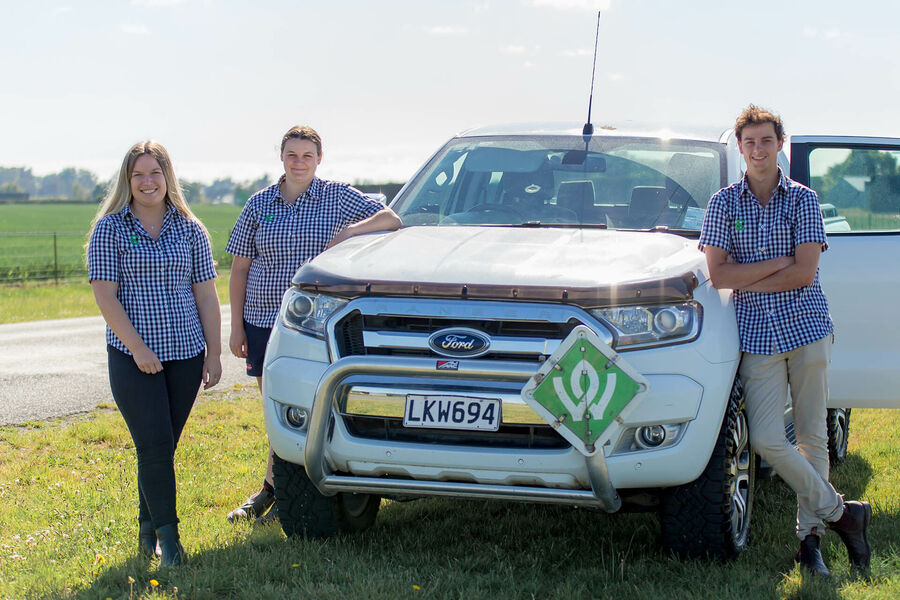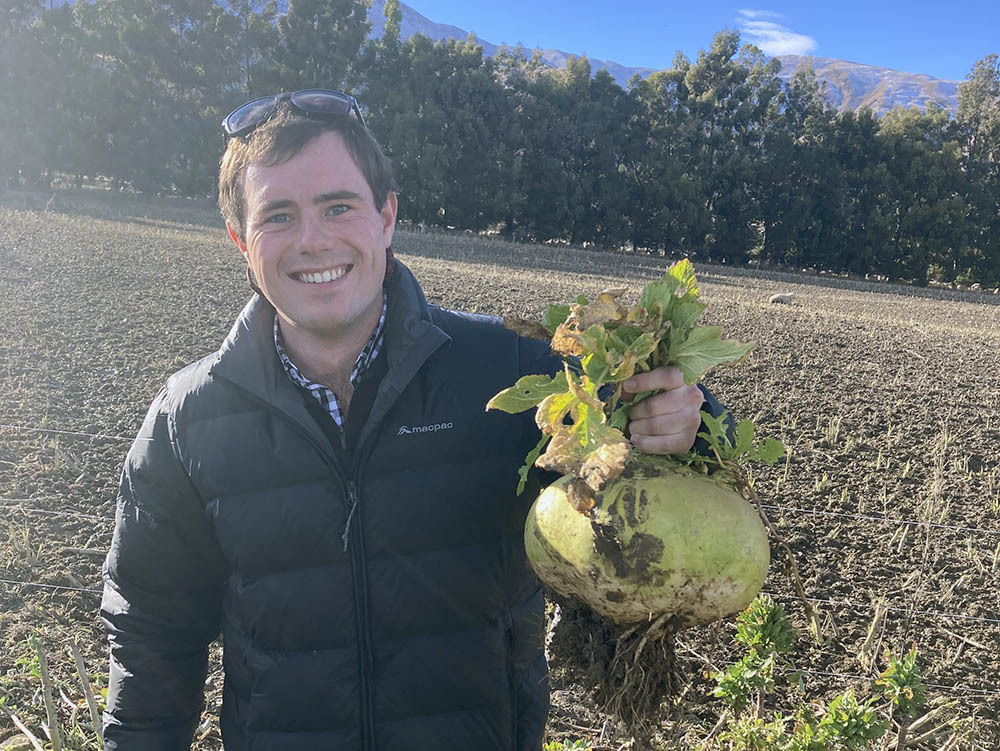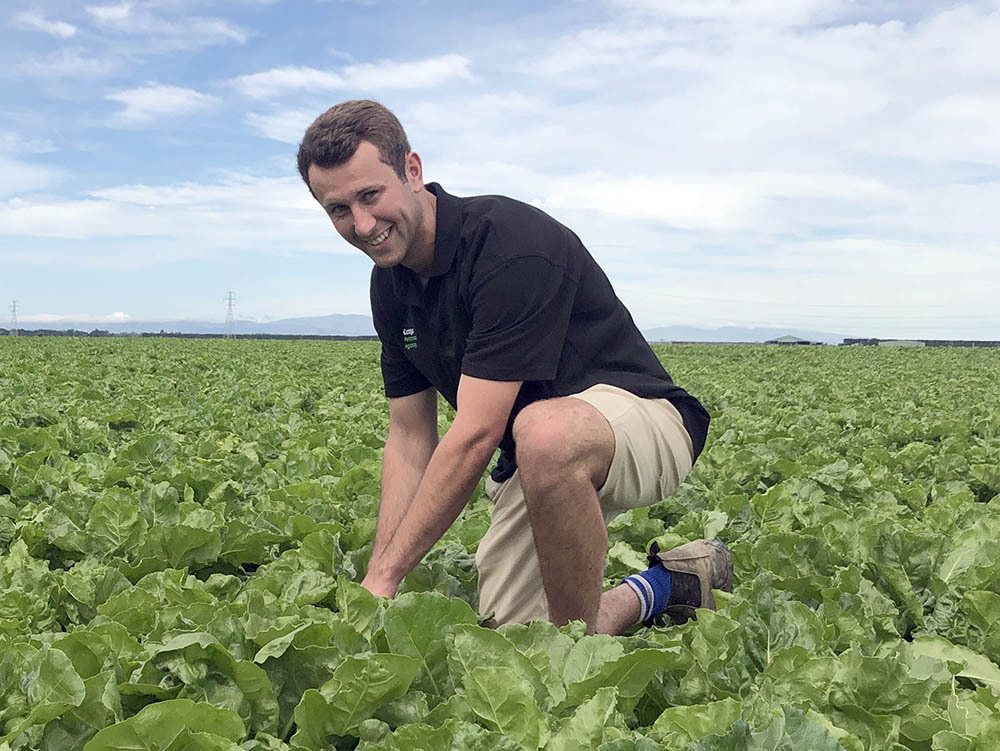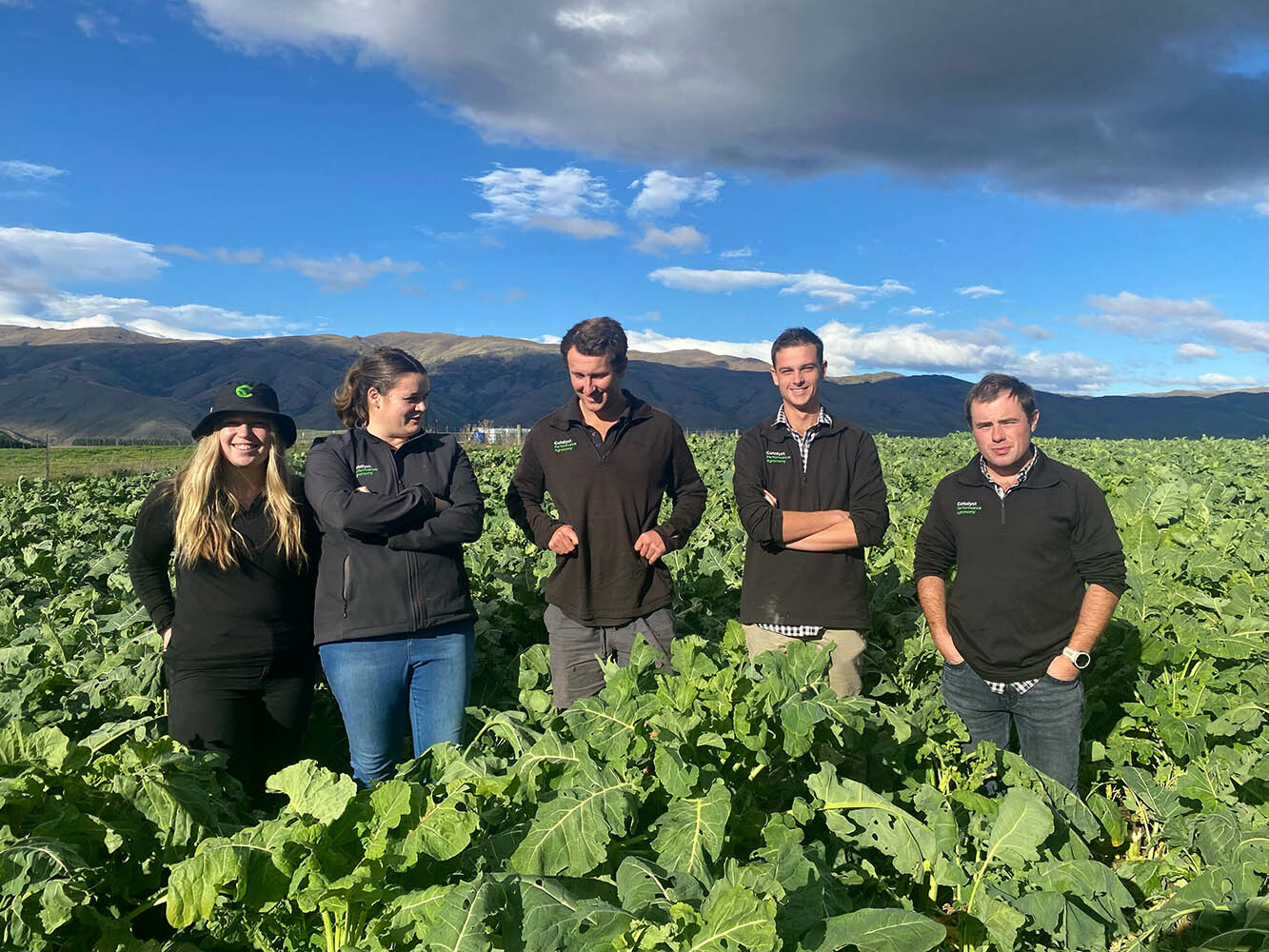
Republished with permission from Business Rural South, Spring 2023. Words by Richard Loader.
Five junior agronomists have recently completed Catalyst Performance Agronomy’s intensive 18-month agronomy programme and can now proudly call themselves qualified agronomists, providing field support and services to pastoral and arable farmers from North Canterbury to Southland.
The graduates of the Catalyst Performance Agronomy Junior programme were tertiary qualified prior to joining the Catalyst team, and while they are not the first employees to work their way up into an agronomy role, they were the first to complete Catalyst’s formalised programme.
Senior Agronomist and Training Manager, Sam Sturgess, says the drivers for developing a formalised programme were multi-layered. “Although we had already been successful in bringing younger people into the agronomy sector, we realised that not all had been as successful as each other and had different learning experiences. With five new junior agronomists entering our business in November 2021 it made sense for them to follow a plan that would create consistency in results and exposure to their roles.”

The Catalyst Junior programme is formulated around Catalyst’s Agronomy Skills Matrix which defines the full role of a practicing agronomist. The Matrix encompasses a range of skills; Technical Knowledge, Sales Execution, Market Intelligence, Executional Agronomy, Farm Systems, Environmental Compliance, Financial Planning, Whole Farm Strategy and Mental Resilience and Wellbeing.
“Our Juniors gain experience in all these facets in group and one-on-one sessions, as well as working side-by-side with a senior agronomist. We’re very proud of the Junior Agronomists we’ve trained and have watched them service their customers over the past season with a high level of accuracy to achieve quality results.”
Employing a team of 25 agronomists, complemented by 25 support staff, Catalyst Performance Agronomy’s head office is based in Tinwald, Ashburton, with satellite locations in North Canterbury, North Otago, Central Otago and Southland. While the bulk of Catalyst’s seed and chemical are stored in Tinwald, each of the satellite locations has its own store for convenience of supply to customers.
Starting in 2008 as Wholesale Seeds Ltd, and predominantly selling grass and clover seeds, the business has evolved as a retailer with a broad range of both its own and other companies’ seeds, along with chemical supplies, with a strong focus on providing on-farm agronomy services and support to its clients. Three years ago, the company rebranded as Catalyst Performance Agronomy, to more accurately reflect its transformation as a high-level provider of agronomic services and products, focused on the pastoral sector.
“Our service isn’t just about selling the seed and turning that into a crop or a pasture,” says Sam. “There are two components to our service; one is providing advice about the whole farm system in general including stock pastures and deploying solutions, and the other is the day-to-day agronomy of managing a particular crop in the paddock to achieve its full yield potential.
“It’s very much about looking at the farm system as a whole, which we do by following what we call a 5-D process — Diagnose, Define, Deploy, Deliver and Debrief. It’s a very close and collaborative pro cess with the farmer that starts with sitting around the table and having a really open discussion about the farm, the farmers requirements, when the feed demand is, and discussing how we can help in the whole process.”

Sam acknowledges that building trust through a close working relationship with the client has always been important for Catalyst. “We like to get to a stage where there is a really high level of trust so that from a financial perspective we can add value to their businesses and show them a return on investment through our agronomy services. Our agronomy staff are customer-facing, and they have to have a high level of people and communication skills to build those strong relationships. Farmers need to be surrounded by good people that they can trust and have transparent conversations about their business. Our agronomists also need to understand farm systems and hold a conversation around the financials of the farm business and the technical side of seeds, weeds, pests, fungi and chemicals.”
“While our own agronomists can help clients with the farmers’ regulatory requirements, we have a financial stake in a business called Lumen Environmental and they can offer a higher level of environmental compliance support when needed.”
With the advantage of working with a very diverse range of farm systems, Catalyst’s agronomists are able to consider a broad range of options for farmers looking to make adjustments to their own farming systems. But Sam says with low commodity prices, low gate prices, and high-interest rates, the number one way that Catalyst can help its clients is through its accuracy of performance.
“We’re frequently in the paddock making justified recommendations and decisions that will deliver a return on investment. You can cut all the costs you like but if you don’t get performance then you are still losing.”
Developing the right workplace culture is always key to a successful business and Sam says a competitive spirit between the regions fused with a real team culture has been a winning formula for Catalyst Performance Agronomy.
“A culture driven from the top down is very important. A few years ago, I suffered a rugby injury and the CEO, Patrick Davis, effectively dropped tools to walk paddocks for me during the busy season. We hold our customers very close to us, and they are number one. We want them to get results off their farm, and if they are getting results that is helping our business too, because we want to retain our customers from season to season. We are a growing company and still working on market share. Our goal is to help a lot of farmers and to be a driver of change to help them achieve results.”
